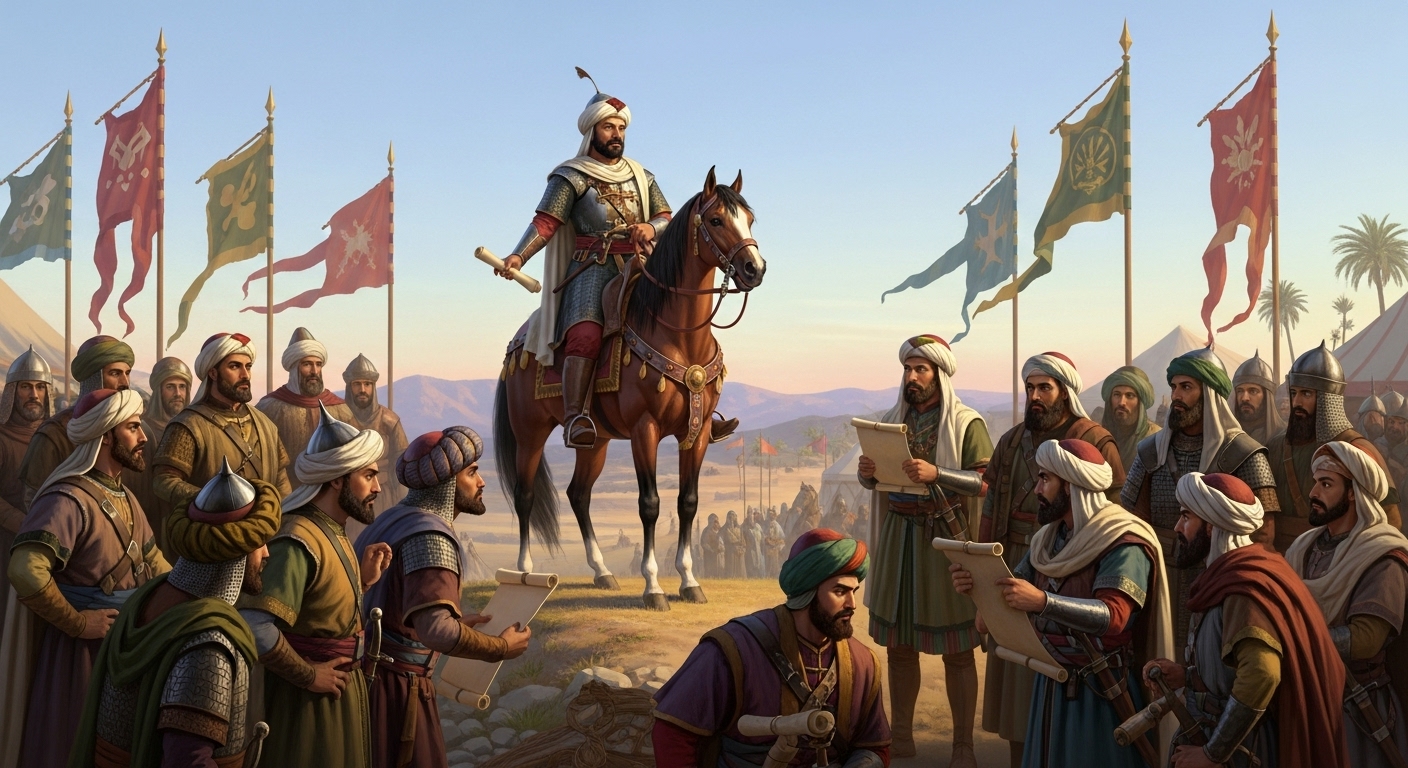Imagine a nation caught between a rock and a hard place, making choices that defied easy labels during World War II. That was Bulgaria: a small country whose complex and often contradictory role in the global conflict continues to fascinate and challenge historical understanding.
Nestled strategically in the Balkans, Bulgaria found itself, not for the first time, at a critical crossroads as World War II erupted across Europe. Burdened by a bitter history of being on the “losing side” in past conflicts, particularly the Balkan Wars and World War I, the nation harbored a deep, understandable desire for territorial revision—a reclaiming of what it passionately believed were its lost lands. This profound longing for a “Greater Bulgaria” would become an undeniable and powerful driver in its often-reluctant alignment during the tumultuous years of World War II.
Indeed, the central paradox of Bulgaria’s involvement in World War II is truly striking: its strategic alignment with the Axis, uniquely contrasted by its astonishing defiance on the Jewish question, and its eventual dramatic shift of allegiance. This narrative serves as a powerful testament to the immense pressure small nations endured, and the often-contradictory, life-altering choices made under duress.
The Path to the Axis: Seeking Lost Territories
Post-WWI Grievances Fueled National Aspirations
The punitive Treaty of Neuilly-sur-Seine in 1919 [1] delivered a devastating blow, stripping Bulgaria of significant territories like Western Thrace (ceded to Greece), parts of Macedonia (to Yugoslavia), and Southern Dobruja (to Romania). These territorial losses inflicted deep national wounds, fueling a fervent and widely shared desire to reclaim these lands and their ethnic Bulgarian populations. The powerful emotional and political dream of a “Greater Bulgaria” thus became a central force, profoundly shaping its foreign policy throughout the interwar years.
Economic and Political Pressures Mounted
As the 1930s drew to a close, German influence in the strategically vital Balkans grew substantially, marked by burgeoning economic ties and the undeniable projection of military power. Bulgaria found itself in an unenviable position, truly “between a rock and a hard place”: a deep-seated fear of Soviet expansion to the east, compounded by enduring rivalries with its immediate neighbors, Yugoslavia and Greece, to the west and south. In this crucible of conflicting pressures, King Boris III, a shrewd and pragmatic monarch, embarked on a delicate and precarious balancing act. He diligently sought to maintain neutrality while simultaneously appeasing both the burgeoning pro-German and entrenched pro-Allied factions within his government and populace.
Accession to the Tripartite Pact (March 1941)
Ultimately, the siren call of territorial gains proved irresistible, and the relentless pressure from Berlin became insurmountable. On March 1, 1941, Bulgaria formally acceded to the Tripartite Pact [2]. This pivotal strategic decision was primarily driven by the enticing promise of reclaiming lost lands: Southern Dobruja had already been peacefully reacquired from Romania in 1940, and now parts of Yugoslav Macedonia and Greek Thrace were poised to be “returned” without Bulgaria needing to engage in direct military combat initially. Crucially, and uniquely among Hitler’s allies, Bulgaria secured a vital condition: it would explicitly avoid declaring war on the Soviet Union and the Western Allies at this crucial juncture, a nuance that would define much of its early war involvement.
A “Non-Belligerent” Axis Member: Limited Engagement
Occupation and Administration of “New Lands”
Following its accession to the Pact, Bulgarian troops swiftly moved to occupy and administer parts of Yugoslav Macedonia and Greek Thrace and Macedonia. These were, of course, the very territories Bulgaria had long coveted, and the nation’s immediate focus shifted to integrating these regions and maintaining internal security, which included conducting anti-partisan operations within these newly acquired zones. While technically an occupier in the eyes of the world, many Bulgarians perceived this move as a rightful return of national lands rather than foreign conquest.
Defiance on the Eastern Front: No Troops for the USSR
One of the truly most remarkable and courageous aspects of Bulgaria’s role in World War II was King Boris III’s steadfast and unwavering refusal to send Bulgarian troops to fight alongside Germany on the brutal Eastern Front against the Soviet Union. This wasn’t a minor disagreement; it was a direct, significant, and highly risky act of defiance, virtually unique among Hitler’s allies [4]. The reasons behind this firm stance were multi-faceted: a deep-seated Russophile sentiment permeated the Bulgarian populace due to historical and cultural ties (especially Russia’s role in liberating Bulgaria from Ottoman rule), coupled with logistical difficulties in deploying troops so far east, and King Boris III’s pragmatic desire to conserve his military strength for potential defense within the Balkan region. This singular decision arguably saved thousands of Bulgarian lives and unequivocally reflected a strong national sentiment.
War on the Western Allies (December 1941)
Despite its principled refusal to engage the Soviets, Bulgaria eventually, and largely as a formality under intense German pressure, declared war on the United States and Great Britain in December 1941. However, direct military action against these powerful Western Allies remained notably limited. Bulgaria’s primary contribution to the Axis war effort on this front was defensive: its fledgling air force engaged valiantly in anti-aircraft defense against increasingly frequent Allied bombing raids. Sofia, the capital, alongside other significant Bulgarian cities, tragically suffered extensive damage from these strategic bombings, particularly intensifying in 1943-1944.
The Holocaust in Bulgaria: A Unique Narrative of Resistance
Initial Anti-Jewish Legislation
Under relentless Nazi pressure, Bulgaria, unfortunately, succumbed to enacting its own series of harsh anti-Jewish legislation, most notably the “Law for the Protection of the Nation” in 1941. This law disturbingly mirrored the infamous Nuremberg Laws, imposing severe economic restrictions, social segregation, and forced labor upon Bulgaria’s Jewish population. The future for these Jewish citizens seemed incredibly grim, especially as the Nazi regime escalated its sinister demands for the “Final Solution.”
The Fate of the “Old Lands” Jews (Bulgarian Citizens): A Story of Courage
In a truly dark turn, a German-Bulgarian agreement was signed in March 1943, ominously planning the deportation of 20,000 Jews from both occupied territories and the “old lands” (pre-1941 Bulgaria). However, what unfolded next was a remarkable, almost unprecedented uprising of moral conscience within Bulgaria. Widespread public, political, and religious opposition swiftly emerged, powerfully uniting diverse segments of Bulgarian society. Brave figures like Dimitar Peshev, the Deputy Speaker of Parliament, alongside other prominent intellectuals, fearlessly spearheaded protests. Crucially, the venerable Bulgarian Orthodox Church played an absolutely heroic role, with Metropolitans Kiril of Plovdiv and Stefan of Sofia openly condemning the deportations and even threatening to physically lie on train tracks to prevent the trains from departing. Public protests and countless petitions flooded the government, generating immense and irresistible pressure [3]. The ultimate, triumphant result of this extraordinary collective resistance was the prevention of the deportation of the approximately 50,000 Bulgarian Jews who were citizens of the “old lands.” This segment of the Holocaust in Bulgaria has a truly unique outcome: They were saved.

The Tragic Fate of the “New Lands” Jews
However, while the “old lands” Jews were miraculously saved, the tragedy for the Jewish population from the occupied territories of Thrace and Macedonia, who were tragically not considered Bulgarian citizens, was starkly, heartbreakingly different. Approximately 11,343 individuals from these vulnerable regions were cruelly rounded up, transferred directly to German custody, and deported to the Treblinka extermination camp, where they tragically perished. This agonizing distinction, based purely on citizenship and jurisdictional boundaries, remains a deeply painful and complex aspect of the Holocaust in Bulgaria and Bulgaria’s involvement in World War II, highlighting the nuanced yet utterly devastating impact of wartime policies and arbitrary distinctions.
Shifting Allegiances: From Axis to Allies
The Tide Turns Against the Axis
As 1943 rolled inexorably into 1944, the global tide of the war turned decisively and irreversibly against the Axis powers. Monumental Allied victories at Stalingrad, across North Africa, and the audacious invasion of Italy signaled the inevitable decline of German dominance. Concurrently, Bulgaria itself experienced increasingly severe Allied bombing campaigns, which particularly targeted its vital infrastructure and the capital city. Internally, a growing partisan resistance movement, coalescing fiercely under the Fatherland Front banner, gained significant momentum, further destabilizing the already precarious government.
The Mysterious Death of King Boris III (August 1943)
A truly pivotal and profoundly unsettling moment was the sudden and still mysterious death of King Boris III in August 1943, occurring just days after a reportedly contentious meeting with Hitler. His successor was his young son, Simeon II, placed under the guidance of a regency council. The tragic loss of King Boris, the shrewd monarch who had so skillfully balanced German demands with Bulgaria’s national interests, left a significant and dangerous power vacuum, effectively removing the key figure capable of navigating Bulgaria’s increasingly complex and perilous international position.
Desperate Attempts to Seek Armistice
With the Axis clearly losing ground on all fronts, the regency council and the Bulgarian government grew desperate, frantically seeking to extricate the nation from the collapsing war effort. They initiated secret, clandestine negotiations with the Western Allies, fervently hoping for an armistice. However, the Allies were resolute in their terms, demanding unconditional surrender and, crucially, a full declaration of war on Germany—an incredibly difficult and dangerous step for a nation still nominally aligned with Hitler.
Soviet Declaration of War and Invasion (September 1944)
The situation escalated dramatically and swiftly on September 5, 1944, when the Soviet Union, surprisingly and despite Bulgaria’s earlier refusal to fight on the Eastern Front, declared war on the nation. Within mere days, powerful Soviet forces crossed the border, meeting remarkably little resistance as the Bulgarian army was largely demoralized and profoundly unwilling to fight against fellow Slavs. The existing pro-German government swiftly and inevitably collapsed.

Bulgaria Joins the Allies
In a rapid and decisive sequence of events, a largely bloodless coup d’état, skillfully orchestrated by the Fatherland Front (a broad coalition of anti-Axis parties, notably including communists), seized power on September 9, 1944. The newly formed government immediately declared war on Nazi Germany and its remaining allies. The Bulgarian army, now dramatically fighting on the Allied side, was swiftly reorganized and participated in significant, albeit costly, campaigns against German forces in Yugoslavia and Hungary, suffering heavy casualties. This dramatic and complete swing of allegiance definitively marked the end of Bulgaria’s World War II involvement as an Axis partner.
Aftermath and Legacy: The Iron Curtain Descends
Immediate Post-War Period and Soviet Influence
The transition, however, proved brutal. Even while fighting on the Allied side, the Bulgarian army suffered heavy losses battling the Germans in the war’s final, desperate stages. With Soviet occupation and undeniable influence now firmly established, a period of profound and often violent change began. A “People’s Court” was swiftly instituted, conducting rapid and often ruthless war crime trials against former government officials, regents, and perceived collaborators, many of whom were subsequently executed or imprisoned.

The Rise of Communism and the Cold War
By 1946, the People’s Republic of Bulgaria was formally established, decisively signaling the nation’s full and irreversible integration into the Soviet bloc and, later, the Warsaw Pact. The post-war era witnessed the swift suppression of political opposition and the imposition of a communist system that would endure for over four decades, profoundly shaping Bulgarian society and its international relations for generations.
Long-Term Historical Debate
Even today, Bulgaria’s involvement in World War II remains a subject of intense and often impassioned historical debate. Its truly unique duality – acting as an aggressor and occupier in the “new lands” while simultaneously achieving the almost miraculous rescue of its own Jewish citizens (a pivotal part of the Holocaust in Bulgaria) – presents a profoundly complex and often contradictory narrative. Scholars continue to meticulously study and debate the intricate motivations, difficult choices, and far-reaching consequences of this tumultuous period, striving to understand how a single nation could embody such stark and powerful contrasts within the confines of one global conflict.
Conclusion: A Nation’s Enduring Quandary
Bulgaria’s role in World War II undeniably stands as a compelling, singular, and often paradoxical chapter in the grand tapestry of European history. From its initial reluctant, yet strategically driven, alignment with the Axis—propelled by deep national aspirations and immense geopolitical pressures—to its remarkable and unprecedented defiance in saving its Jewish population from the Holocaust, and its eventual dramatic shift to the Allied side, the nation navigated an incredibly treacherous and morally complex path.
The momentous decisions made during these pivotal years were shaped by a powerful confluence of forces: a deep, almost visceral desire to reclaim lost territories, palpable fear of powerful neighboring states, and profound internal moral struggles that touched the very soul of the nation. Bulgaria’s gripping story serves as a poignant reminder that war rarely, if ever, presents clear-cut choices, especially for smaller nations caught mercilessly between warring great powers. It underscores that individual and collective choices, even under the most extreme duress, can forge profound and lasting impacts on history.
Ultimately, the rich and layered Bulgaria’s World War II narrative stands as a powerful reminder of how nations, driven by self-preservation and the quest for identity, strive to navigate the brutal currents of global conflicts. It offers invaluable lessons in both human resilience and the tragic, often contradictory, complexities inherent in history itself.



